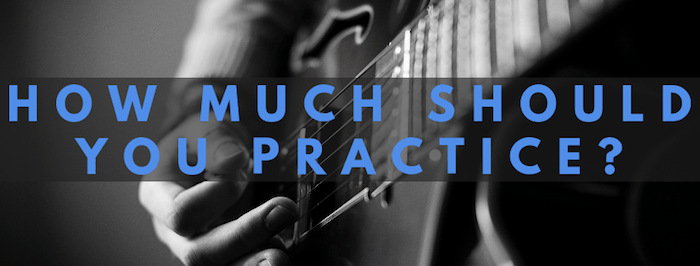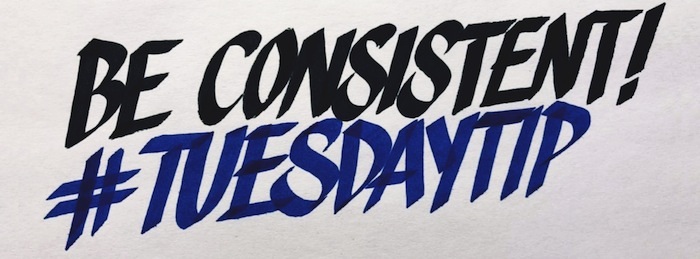
“1 hour every day” is the usual one-size-fits-all prescription for new musicians when asking how much to practice. The problem with this idea is all musicians aren’t the same and all musicians don’t have the same schedule. And what about when you’re not so new to your instrument? What now? Should you practice for more time? Less time?
This question can be split into two questions: “How often should you practice?” and “How long should you practice?”. Today, I hope to shed a little light on these two questions and help you see what works best for you.
1. How often should you practice?
Before we even address the subject of how long you should practice, what matters most is that you are consistent. When you try to get in shape, a fifteen-minute workout every day is more effective than 3 hours on Saturday. You will find that getting good at your instrument is very much the same. Short bursts of practice throughout the week offer much better results than plowing through hours on end once a week.

Now, this isn’t to say that you shouldn’t have any long practice sessions. I’m also not saying that your practice means nothing if you can only set aside one or two days a week. What I am saying is that in the battle of frequency vs. duration of practice, frequency always wins. That being said, I think it is very important that you schedule specific time blocks with specific goals in mind.
It is imperative that you tell yourself exactly when you will practice.
Even more important than how often and how long you practice, you have to make sure the practice actually happens! You know your schedule better than anyone so without diving into your calendar, I can’t even begin to suggest when you should practice. What I do strongly urge you to do is to examine your schedule and see what empty or replaceable time blocks you have. What I mean by replaceable is time spent doing unimportant things like watching TV, scrolling through Instagram, and eating (totally joking about that last one).
Once you identify these time blocks, make a commitment to yourself to dedicate some of that time to practice. Now that that’s settled, we can tackle the issue of how much time you can afford.
2. How long should you practice?
Now that you’ve figured out when you can practice, you need to tell yourself exactly how long you will practice on those days. This will probably vary from day to day but set a hard minimum and maximum of how long you will practice each day.
I would recommend that your minimum practice time be no less than 30 minutes if at all possible. It can be difficult to accomplish much in less time than that. However, I’m no stranger to the fact that a high school student’s schedule will differ from a single parent of 5! If your practice time is very intentional and focused, you can get a fair amount done in 10-20 minutes.
Believe it or not, you can practice too much. If you spend too much time working on the same thing, your focus can waver and your fingers can fumble. Once you hit this point, your practice will no longer be fruitful so it’s best to avoid it altogether. This usually occurs around 1.5 hours so maybe start there as your maximum. You can still practice longer in a day (maybe even 5 hours!) but maybe consider scheduling some breaks to rest your brain and fingers to make sure every second is productive.
Bear in mind that I’m specifically talking about thoughtful and focused practice, not time spent doodling or simply having fun. If you’re like me, you can mess around on your instruments for hours on end with absolutely no problem. You don’t need to limit this time as long as it doesn’t prevent you from having that focused practice time.
So what?
Ultimately, the question of how much you should practice can only be answered by you. If you forget everything else, remember these two points:
- You need to schedule your practice time.
- If you don’t schedule your practice time, it becomes much easier to forget about it or blow it off until “tomorrow”.
- Consistency is more important than how long you practice.
- Going back to the fitness comparison, a highly focused 15-minute workout every day will always be more effective than 3 hours once a week while eating junk food and being inactive the entire rest of the week.
Just like anything in life, excellence on your instrument will require some degree of sacrifice. Maybe you really don’t have a lot of time and you need to free some time up. This might mean some late nights and some early mornings. This might mean recording your favorite show and watching it in increments instead of watching it live.
This is a different discussion for another day but perhaps, the real question you should be asking yourself is “How much time am I willing to sacrifice to reach my goals?”.
